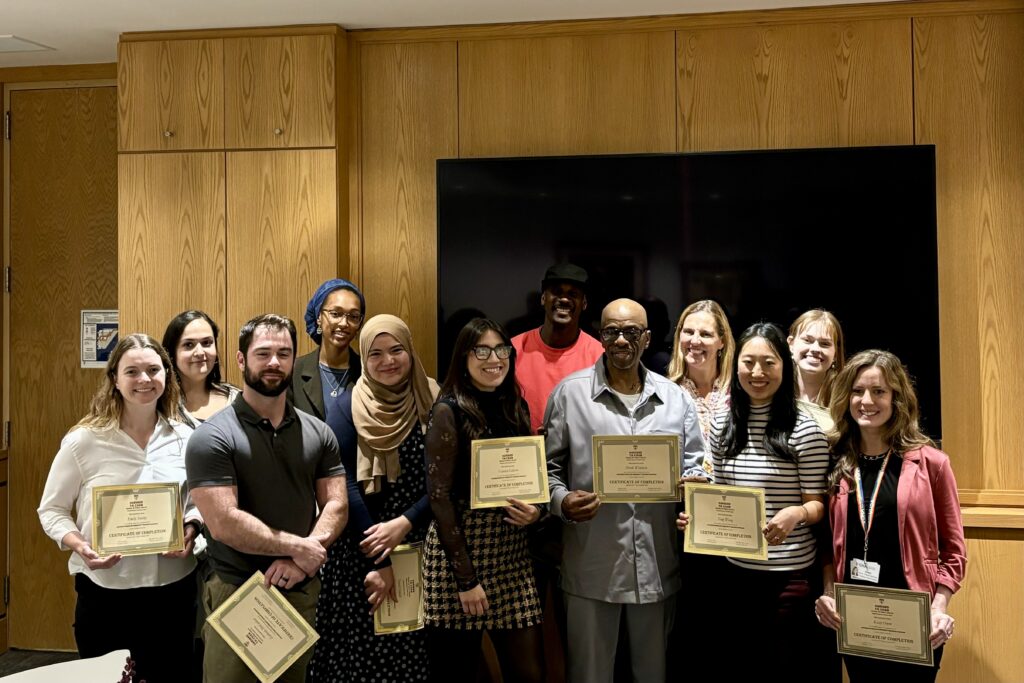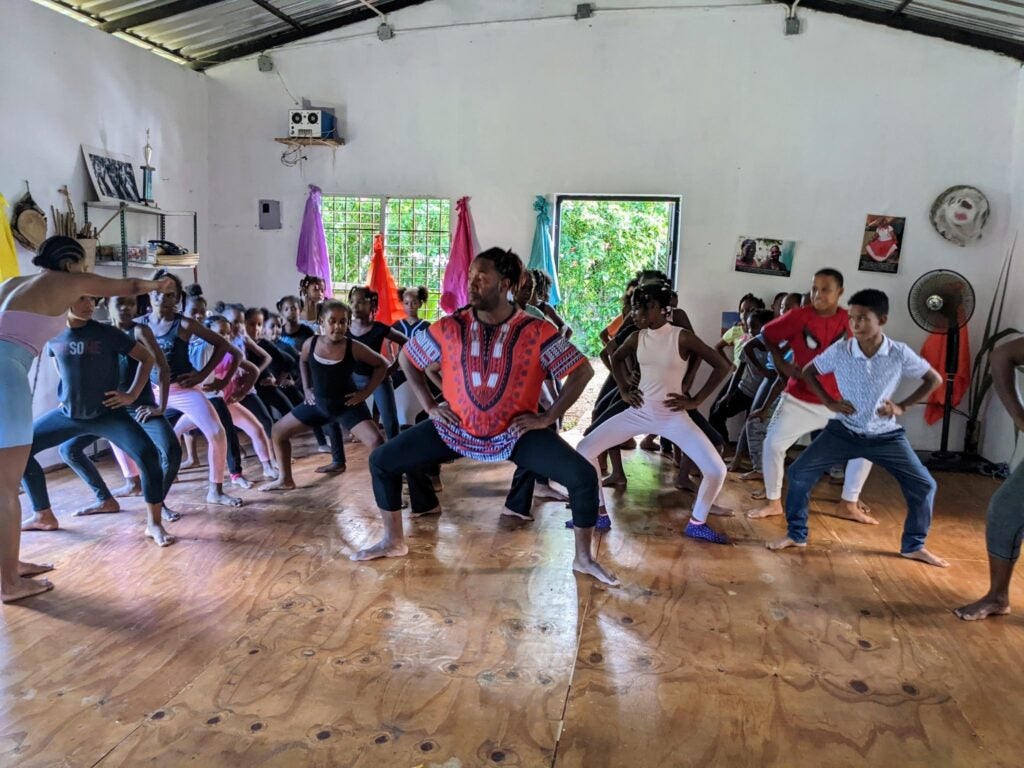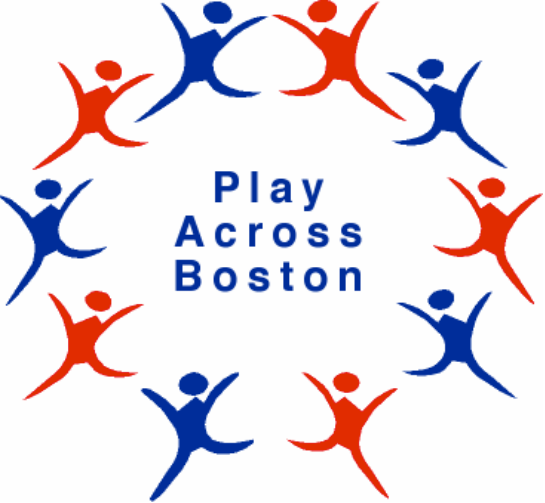Prevention Research Center on Nutrition and Physical Activity
Working with communities to promote healthy eating and active living.
High Impact Research
Since 1998, the Prevention Research Center on Nutrition and Physical Activity has worked in partnership with schools, early care and education, out-of-school time, clinical, and other community partners to launch groundbreaking research to develop actionable, real-world solutions to promote nutrition and physical activity. We have developed, evaluated, and disseminated tools and trainings within our partner communities and states, as well as nationally and internationally.
Read on to learn more about the real-world impact our research has made.
Creating Healthier Spaces for Kids

Since 2012, hundreds of afterschool programs throughout the country, from Massachusetts to Tennessee to Pennsylvania, have participated in the Out-of-School Nutrition and Physical Activity (OSNAP) Initiative. OSNAP empowers educators to create healthier spaces for kids by improving nutrition- and physical activity-related practices, environments, and policies in afterschool and summer programs. This means that thousands of kids now attend afterschool programs with more physical activity opportunities and less exposure to sugary drinks that can harm their health.
We see clearly that the OSNAP program, with its training, guidelines and resources, has empowered our clubs to support healthier practices for all our members and staff.
— Boys and Girls Club Staff
Training & Inspiring the Next Generation of Public Health Practitioners
Since 2011, our Leaders in Health program has served 120+ community partners who work tirelessly to support health in their communities but have not had access to traditional public health training. In addition, over 20 master’s students have participated in co-learning with these community partners to understand the real-world challenges of public health. Our program has built these community leaders’ capacity to strategically plan and rigorously evaluate their own community health programs so that they can maximize their impact.

I met so many nice people who were also working to improve the lives of their community members and I enjoyed learning the best way to bring the community together for a cause that’s important to everyone.
— Ricardo Henry, Community Leader at Health Leads, Leaders in Health Alumnus ’22
Collaborating with State, County, and City Health Agencies to Drive Change

Participating in the CHOICES Learning Collaborative Partnership has connected us to partners and exposed us to strategies we weren’t otherwise on the pulse of. Now having personal contacts and relationships with the Massachusetts Clean Water Trust and strengthened relationships with the American Heart Association and cross-agency between the Massachusetts Department of Public Health and Department of Elementary and Secondary Education improves our efficiency and collective impact.
— Claire Santarelli, Director, Division of Health Protection & Promotion, Massachusetts Department of Public Health
Through the CHOICES Project’s Learning Collaborative Partnership, we have worked with 20+ state and local partners to develop skills in understanding and using cost-effectiveness analysis to model the potential implementation of evidence-based strategies for changing local policies and practices. In addition, we’ve provided extensive guidance and training for communicating about CHOICES models and results.
As a result of this modeling work, our partners have been able to provide evidence for action in their communities and real changes have been made:
In 2016, the Oklahoma State Department of Health and the Oklahoma Department of Human Services participated in the CHOICES Learning Collaborative Partnership and modeled strategies to improve child health, including incorporating screen time counseling into the Special Supplemental Nutrition Program for Women, Infants, and Children (WIC) program. Our model results showed that this intervention could result in 149,000 Oklahoma children adopting healthy screen time behaviors over 10 years and the prevention of 660 cases of childhood obesity in the final year.
After reviewing the model results and realizing how easy it would be to modify the WIC software, the Oklahoma Team decided to make the change. Screen time counseling in the Oklahoma WIC program was rolled out in 2017.
In 2017, Denver Health participated in the CHOICES Learning Collaborative Partnership and modeled strategies to improve child health through their hospital systems, including incorporating electronic decision support for pediatric medical providers in Denver Health pediatric primary care settings during well-child care visits. Our model results showed that this intervention could reach 19,400 children in Denver over 10 years and prevent 300 children from having too much weight for their health.
The results from modeling this strategy gave the Denver team data to support a grant application for strategy implementation. With leadership support and funding, Denver Health was well positioned to begin implementing components from this strategy in 2019.
Building Capacity Among Community Partners
We strive to meet the needs of our community partners and the people they serve. In recent years, we’ve been offering one-on-one technical assistance to community partners to build capacity through supporting planning, evaluation, communications, and grant writing activities focused on nutrition and physical activity topics.
Supporting Jean Appolon Expressions’ Fusion of Dance and Wellbeing
In 2023, we partnered with staff at Jean Appolon Expressions, a contemporary dance company, to conduct a literature review to explore evidence demonstrating the health benefits of dance in addition to developing a survey to collect data from dancers on physical and mental impacts they experience from dance.

The partnership also yielded the development of guidance for mapping the relationships between dancers and using Photovoice, a method using images to bring light to a specific issue and empowers participants to be involved in the solution-building process in their own communities.
Widespread Use of Evidence-Based Resources
We have developed two curricula, one for middle/high and another for elementary schools, that teach youth science-based lessons about nutrition and physical activity. These curricula have not only been found to improve nutrition and physical activity in kids, but also have been found to reduce disordered eating. What’s more, they also have been developed in partnership with educators to seamlessly integrate into existing math and science classes and support meeting a variety of state educational standards.
Planet Health and Eat Well and Keep Moving curricula have been disseminated worldwide, with over 10,000 copies of Planet Health, and 5,000 copies of Eat Well and Keep Moving distributed in all 50 U.S. states and more than 20 countries.

Translating Research into Practice

Play Across Boston was a comprehensive community-based assessment of youth sports and physical activity resources in Boston to understand how community resources and individual and household characteristics combine to influence levels of physical activity. Former Boston Mayor Thomas Menino called the Play Across Boston work “a ‘playbook’ for future sports and recreation plans by the City of Boston and its partners.” After documenting differences in participation in out-of-school time programs and access to quality playgrounds in the city, the project partners worked together to monitor ongoing citywide efforts and success in improving access to quality physical activity facilities.